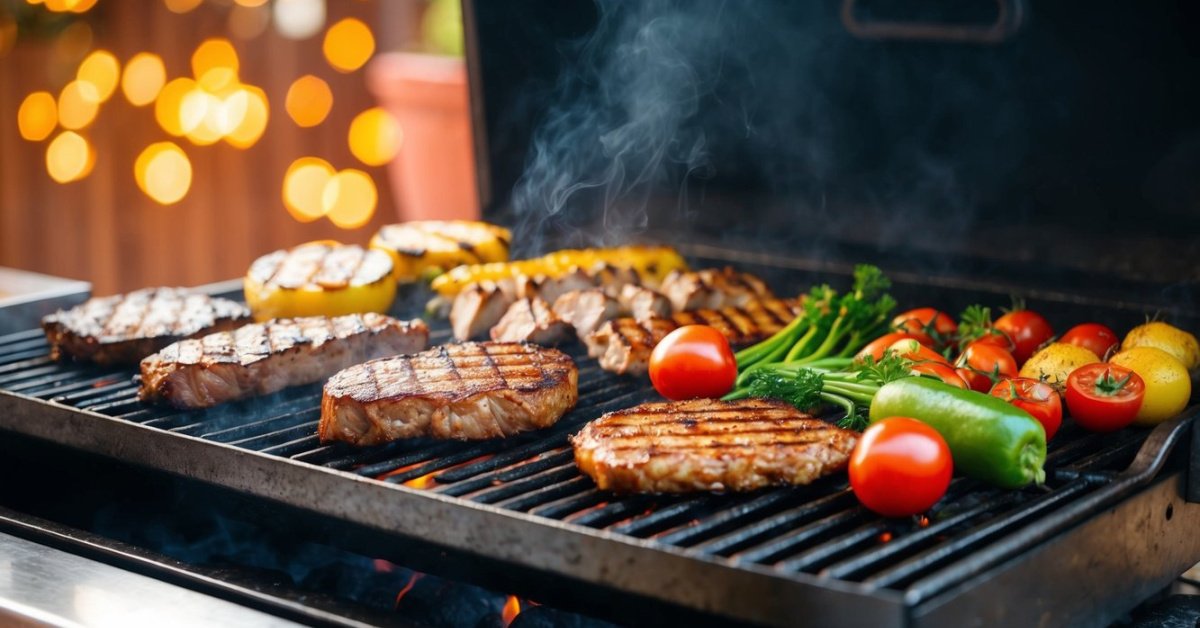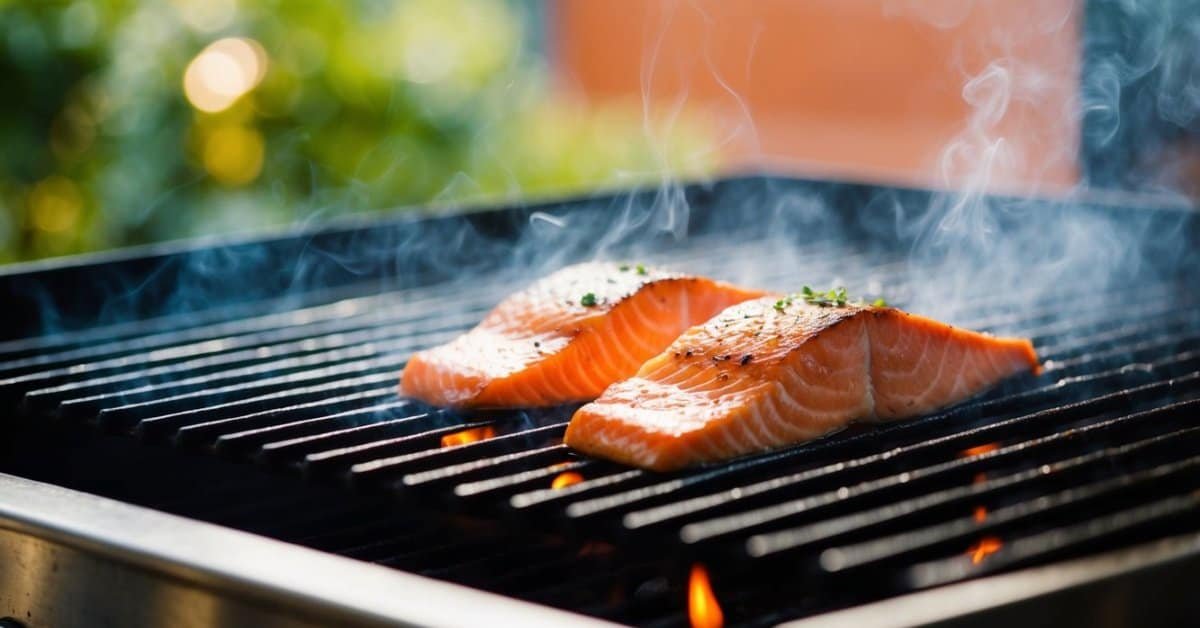
Hey there! Are you a fan of barbecue? Well, today we’re going to dive into an interesting topic that might surprise you: the spelling of barbecue. You may have noticed that there are different variations of the word, like “barbecue,” “barbeque,” or even “BBQ.” But have you ever wondered which one is the correct spelling? Stick around as we explore this linguistic conundrum and shed some light on the matter!
Have you ever found yourself in a friendly debate with your friends over how to spell barbecue? It’s a common occurrence, and it’s no wonder why. The spelling of this beloved word seems to vary depending on who you ask. In this article, we’ll explore the different spellings of barbecue and try to uncover the truth behind this spelling mystery. So, grab a plate of your favorite BBQ and get ready to dig into this fascinating topic!
The History of Barbecue
Now that you’ve mastered the art of grilling and have become a true grill master, let’s take a moment to explore the fascinating history of barbecue. Understanding the origins of this beloved culinary tradition can deepen your appreciation for the craft and enhance your grilling skills.
Barbecue, or BBQ for short, has a rich and diverse history that spans centuries and continents. It is believed to have originated from the indigenous peoples of the Caribbean, who slow-cooked meat over an open fire, creating a unique and delicious flavor. As European explorers arrived in the Americas, they encountered this cooking method and were captivated by its smoky aroma and tender meat.
The word “barbecue” itself has various spellings, including “barbeque” and even “BBQ.” This linguistic conundrum reflects the diverse cultural influences that have shaped barbecue over time. From the Spanish “barbacoa” to the French “barbe à queue,” the word has evolved and adapted to different languages and regions.
In the United States, barbecue has become deeply ingrained in the culinary traditions of different regions, each with its own distinct style. The Carolinas are famous for their vinegar-based sauces, while Kansas City is known for its thick and tangy tomato-based sauces. Texas, on the other hand, takes pride in its slow-smoked beef brisket, while Memphis is renowned for its dry-rubbed ribs.
As a grill master, it’s important to embrace the diversity of barbecue and explore different styles and flavors. By understanding its history, you can appreciate the cultural significance of each regional variation and incorporate them into your own grilling repertoire.
The Variations in Barbecue Spelling
Now that we’ve delved into the rich history of barbecue, it’s time to address something that often perplexes many barbecue enthusiasts – the variations in barbecue spelling. You may have noticed that the word “barbecue” is sometimes spelled as “barbeque” or even abbreviated as “BBQ”. So, what’s the deal with these different spellings?
First of all, let’s address the most common variations – “barbeque” and “BBQ”. These spellings are often used interchangeably and have become somewhat of a shorthand in the world of barbecue. The abbreviation “BBQ” is commonly used in restaurant names, menu items, and even on sauce bottles. It’s a way to convey the essence of barbecue in a concise and catchy manner.
The spelling “barbeque” is another variation that you might come across. This spelling is often associated with a more informal and casual feel. It’s commonly used in backyard barbecues and social gatherings, where the focus is on enjoying good food and good company. So, whether you prefer to use “barbecue”, “barbeque”, or “BBQ”, know that they all refer to the same delicious art of cooking meat over an open flame.
Interestingly, the different spellings of barbecue can also be attributed to regional and cultural influences. For example, in some parts of the United States, particularly in the South, the spelling “barbecue” is more commonly used. This reflects the deep-rooted tradition and passion for barbecue in those regions.
The variations in barbecue spelling are simply a matter of personal preference and regional influences. They all refer to the same mouthwatering cooking technique that has captivated people for centuries. So, embrace the diversity in barbecue spelling and focus on perfecting your grilling skills. After all, it’s not about how you spell it, but about the delicious flavors you create on the grill.
Is it Barbecue or BBQ?
As a grill master, you may have noticed that the spelling of “barbecue” can sometimes be a bit confusing. Is it spelled “barbecue” or “BBQ”? Well, the truth is, both spellings are correct. It really comes down to personal preference and regional influences.
The word “barbecue” is derived from the indigenous peoples of the Caribbean, who used a wooden structure called a “barbacoa” to cook their meat over an open flame. When European explorers encountered this cooking method, they were captivated by the delicious flavors and brought it back to their own countries. Over time, the spelling of “barbecue” evolved to what we know today.
On the other hand, “BBQ” is an abbreviation of the word “barbecue.” It is commonly used in informal contexts or on menus to save space. The abbreviation has become popular, especially in the United States, where barbecuing is deeply rooted in culinary traditions.
The difference in spelling does not change the essence of the delicious art of cooking meat over an open flame. Whether you prefer to use “barbecue” or “BBQ,” what matters most is the love and passion you put into your grilling.
So, embrace the variations in spelling and focus on perfecting your grilling techniques. Experiment with different marinades, rubs, and sauces to create your own signature flavors. Remember to take your time and enjoy the process of grilling. The smoky aromas and mouthwatering flavors will surely impress your friends and family.
Now that we have clarified the spelling confusion, let’s dive into the world of regional barbecue styles and explore the unique flavors and techniques that make each one special.

Common Misspellings of Barbecue
« Are Reusable Grilling Sheets Safe? Important Tips for a Safe Grilling Experience
How to Protect and Maintain Cast Iron Grill Grates »
As a grill master, I understand that the world of barbecue can be a bit confusing, especially when it comes to the different spellings of “barbecue.” It’s not uncommon to see variations such as “barbeque” or even the more casual “BBQ.” While these spellings may seem interchangeable, they do have their own nuances and regional influences.
Let’s dive into some of the common misspellings of barbecue and what they mean:
- Barbeque: This spelling is often used as an alternative to “barbecue” and is more commonly seen in the Southern United States. The extra “e” in “barbeque” is believed to mimic the pronunciation of the word, emphasizing the “e” sound. It’s a small difference, but it reflects the unique regional dialect and adds a touch of Southern charm to the word.
- BBQ: This abbreviation is widely used and recognized across the United States and beyond. It’s a more casual and convenient way to refer to barbecue, often seen on menus, restaurant signs, and backyard gatherings. Using “BBQ” takes away the need to spell out the entire word and adds a playful and informal vibe to the concept of grilling and smoking meat.
- Bar-B-Q: Another variation you might come across is “Bar-B-Q.” This spelling is often associated with a specific style of barbecue, particularly in the Carolinas. The hyphens in “Bar-B-Q” are used to represent the slow and low cooking method where the meat is smoked for hours, resulting in tender and flavorful dishes. It’s a nod to the traditional and time-honored techniques of barbecue.
Remember, while the spelling of barbecue may vary, the passion and love for grilling remain the same. So, whether you prefer “barbecue,” “barbeque,” or “BBQ,” what truly matters is the delicious food and the joy it brings to your taste buds.
Now that you’ve learned about the different spellings of barbecue, let’s move on to explore the rich history and diverse regional styles of this beloved culinary tradition.
Conclusion
Now that you’ve explored the history and various spellings of barbecue, you have a deeper understanding of this beloved culinary tradition. From its origins with indigenous peoples to its popularity across different regions of the United States, barbecue has a rich and diverse history.
Whether you prefer “barbeque,” “BBQ,” or another spelling, it’s important to remember that the essence of barbecue lies in the delicious food and the joy it brings to your taste buds. The different spellings often reflect personal preference and regional influences, but they don’t change the mouthwatering experience of cooking meat over an open flame.
As you continue to enjoy and appreciate barbecue, embrace the diversity and cultural significance it represents. Whether you’re savoring vinegar-based sauces in the Carolinas or indulging in slow-smoked beef brisket in Texas, each regional style offers a unique and flavorful experience.
So, whether you’re a fan of “barbeque,” “BBQ,” or any other spelling, keep exploring, experimenting, and enjoying the delicious art of barbecue.














